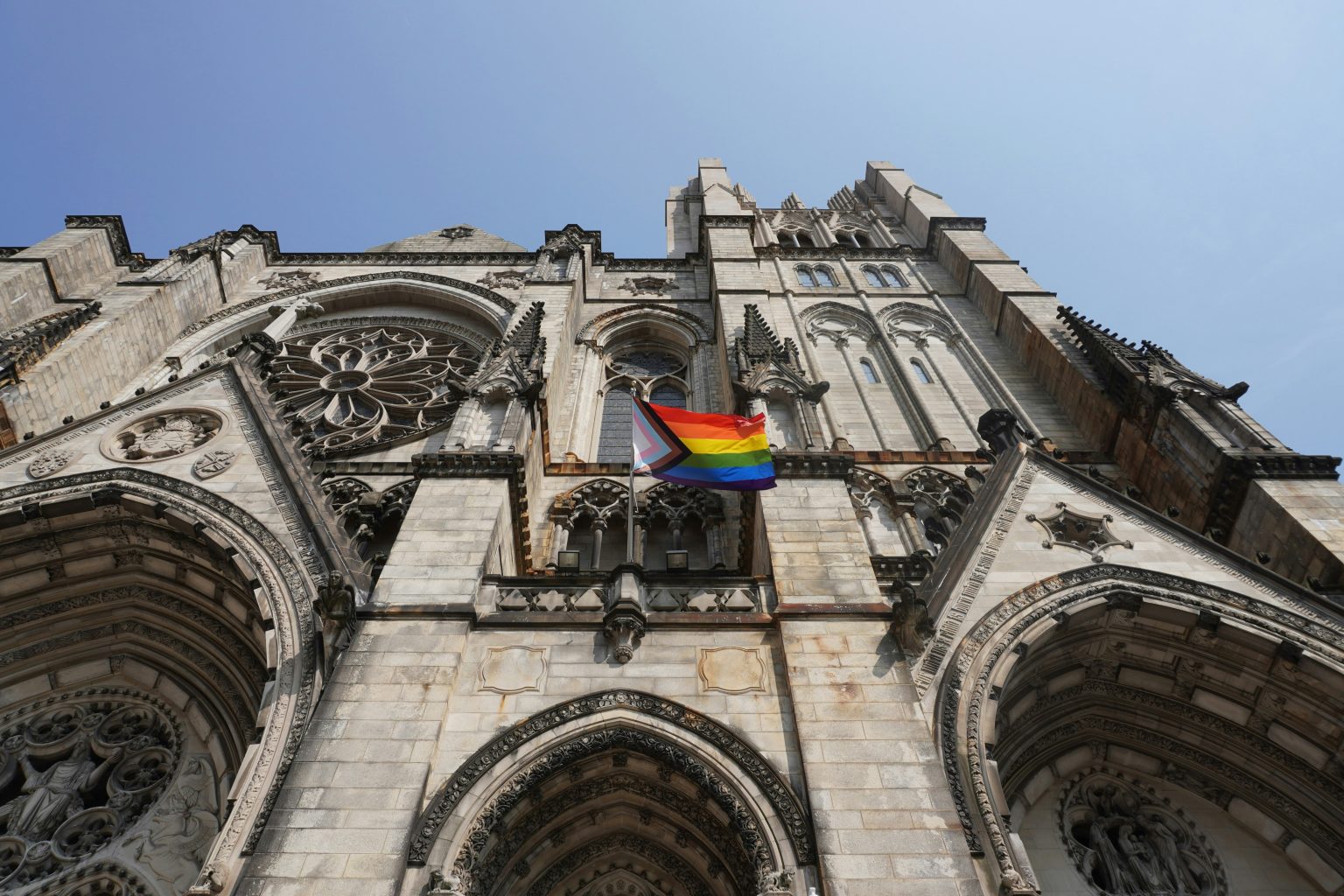As communities across the United States rally for acceptance of sexual orientation and gender identity, the Vatican has garnered criticism for its hard-line stance in opposition to the LGBTQ+ community. Long regarded as a figurehead of traditionalism, the Vatican has historically based its views on matters concerning homosexuality and gender diversity on conservative interpretations of scripture. However, in recent years, Pope Francis has made attempts to shift away from secularism toward the LGBTQ+ population.
In January 2023, during an interview with the Associated Press, Pope Francis shocked the Catholic community by declaring that, “Being homosexual isn’t a crime,” the first time a Pope has spoken publicly against laws criminalizing homosexuality. This is largely in line with his stance that the Roman Catholic Church should welcome everyone and not discriminate against parishioners based on sexuality.
In late 2023, the Pope approved the baptism of transgender members of the church, which allows them to become baptismal sponsors (godparents) and witnesses at weddings. This reversed an absolute ban from 2015 that forbade transgender individuals from being appointed as godparents during baptism. However, this decision was not universally supported within the Catholic Church. Pope Francis’ declaration was made with the caveat of allowing baptisms as long as “there are no situations in which there is a risk of generating public scandal, or disorientation among the faithful.”
In December 2023, Pope Francis released a statement allowing Catholic priests to bless same-sex civil unions. This doctrine affirmed that marriage is between a man and a woman, but allows for unions that acknowledge the commitment and love between same-sex couples. In his Declaration Fiducia Supplicans, Pope Francis wrote, “Those seeking a blessing should not be required to have prior moral perfection.” While this does not change the Roman Catholic Church’s stance on homosexuality, it indicates a continuing shift within the Catholic community.
While this change is clear, it is difficult to pinpoint where it originated. Is Pope Francis steering the change or is he a representative of a shift in attitudes that have already been observed locally?
As of 2020, about 69% of Catholics in the United States supported same-sex marriage, according to a Gallup poll. This number represents a large change compared to two decades prior when 60% of Catholics were against same-sex marriage. With an average of 64% of all Americans supporting same-sex marriage, there is a major shift towards inclusivity among individual followers of the Catholic Church. Gallup reports in the same poll that nearly half of LGBTQ+ adults are religious. As a larger percentage of the congregation is a part of the LGBTQ+ community, many parishes are shifting their values.
In 2022, a more recent poll from the Associated Press revealed that 77% of Catholics feel that parish members who identify as LGBTQ+ should be able to receive Communion. As Dr. Natalia Imperatori-Lee, Professor of Religious Studies at Manhattan College, writes in her article, “This poll reinforced the notion that [U.S. Catholics] want the public square to remain pluralistic, free from coercion, and oriented toward care for the vulnerable populations among us.”
While the Vatican is progressing towards inclusion, some Catholic parishes are pushing for more from the Roman Catholic leadership. Spiritus Christi, a Catholic church based in Rochester, New York, has welcomed all community members for years. “I think diversity and inclusion is the Catholic mission, right? […] Catholic means universal,” said Reverend Myra Brown, of Spiritus Christi. This foundational belief has led the parish to welcome female clergy, LGBTQ+ members, and members of other denominations.
Spiritus Christi split from the Roman Catholic doctrine to honor their more progressive view on faith, all while remaining a Catholic church. However, Reverend Brown of Spiritus Christi and the clergy continue to push for more from the Vatican. “I hope that they will open the doors to them […] and recognize the gifts that the Holy Spirit has placed upon all the faithful […] without distinction,” Reverend Brown said.
Even so, not all parishes are following suit. On February 15, 2024, St. Patrick’s Cathedral in New York City, held a funeral for transgender rights activist, Cecilia Gentili, who passed away earlier this year. While the mass had an impressive turnout, parish officials later made a statement about the funeral. “The Cathedral […] had no idea our welcome and prayer would be degraded in such a sacrilegious and deceptive way,” said Reverend Enrique Salvo in a statement issued on X (formerly known as Twitter). Catholics across the nation were outraged at the funeral, claiming that it endorsed sin and darkness. The cathedral then offered a mass of reparation after backlash from the community and conservatives nationwide.
There is a current progressive shift in the Catholic Church to become more welcoming and inclusive of the LGBTQ+ community, including recent decisions by the Vatican to bless same-sex unions and approve baptisms for transgender parishioners. However, there remains discourse between these decisions and the Church’s international leadership. Parishioners recognize that same-sex unions do not equate to marriage equality, with Pope Francis himself referring to union blessings as not being reserved just for those with “moral perfection.” These contradictory statements have constructed a deeper cataclysm within the Church over the fight for LGBTQ+ inclusivity, despite overwhelming support from church members.

